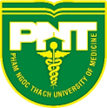Health literacy and health equity are two important concepts that play a significant role in ensuring the well-being of individuals and communities. While they may seem distinct, they are closely interconnected and have a profound impact on the overall health outcomes of populations.
Understanding Health Literacy
Health literacy refers to an individual’s ability to understand and use health information to make informed decisions about their health. It encompasses not only the ability to read and comprehend health-related materials but also the skills to navigate the healthcare system, communicate effectively with healthcare providers, and make appropriate health choices.
Low health literacy is a widespread issue that affects people from all walks of life. It can lead to misunderstandings about medical conditions, medications, treatment options, and preventive measures. This lack of understanding often results in poor health outcomes, increased healthcare costs, and health disparities.
The Impact of Health Literacy on Health Equity
Health equity, on the other hand, refers to the absence of disparities in health and healthcare among different populations. It is about ensuring that everyone has an equal opportunity to achieve optimal health regardless of their socioeconomic status, race, ethnicity, or other social determinants of health.
Health literacy plays a crucial role in achieving health equity. When individuals have the knowledge and skills to understand and act upon health information, they are better equipped to take control of their health and make informed decisions. This empowers them to access appropriate healthcare services, adhere to treatment plans, and engage in preventive behaviors.
Conversely, low health literacy can exacerbate health disparities and contribute to inequitable health outcomes. Individuals with limited health literacy may face barriers in accessing and understanding health information, leading to delays in seeking care, misunderstandings about diagnoses and treatment options, and overall poorer health outcomes.
Promoting Health Literacy and Health Equity
Improving health literacy and promoting health equity require a multi-faceted approach involving various stakeholders, including healthcare providers, policymakers, educators, and communities. Here are some strategies that can help:
1. Clear and Accessible Communication:
Healthcare providers should use plain language and avoid jargon when communicating with patients. Written materials should be easy to understand, well-organized, and available in multiple languages. Providing visual aids, such as diagrams or videos, can also enhance comprehension.
2. Health Education:
Investing in health education programs that target vulnerable populations can empower individuals to make informed decisions about their health. These programs should focus on improving health literacy skills, teaching self-care techniques, and promoting preventive behaviors.
3. Community Engagement:
Engaging communities in healthcare decision-making processes and involving them in the design and implementation of health programs can help address specific needs and barriers. Community health workers can play a vital role in bridging the gap between healthcare providers and the community.
4. Health System Reforms:
Policymakers should prioritize health literacy in healthcare reforms. This includes implementing policies that support health literacy training for healthcare professionals, integrating health literacy into quality improvement initiatives, and ensuring access to culturally appropriate care.
The Road Ahead
Health literacy and health equity are intertwined, and addressing one without the other is insufficient. By improving health literacy, we can empower individuals to take control of their health and reduce health disparities. Promoting health equity ensures that everyone has equal opportunities to achieve optimal health outcomes.
As we move forward, it is crucial to continue raising awareness about the importance of health literacy and health equity. By working together, we can create a healthcare system that is accessible, equitable, and empowering for all.
